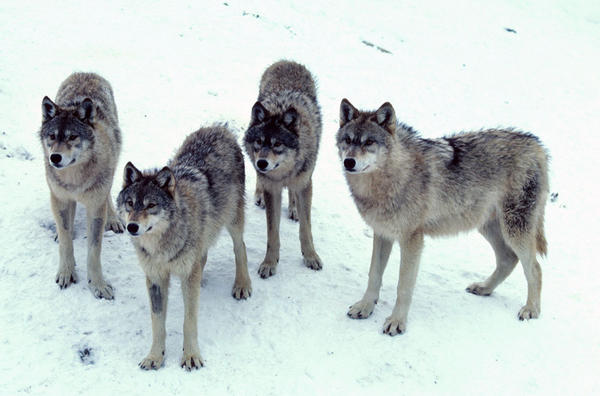09.08.2016
Originally published on September 9, 2016
But some parties felt left out of the discussion.
Donny Martorello is in charge of the state’s wolf policy. He said ultimately, the Washington Department of Fish and Wildlife is a “conservation organization.”
“We wouldn’t be removing a wolf pack if we believed at all that there was a conservation impact or an impact of recovery of the species in Washington,” Martorello said.
He said the state’s decision to eliminate Profanity Peak wolves is in keeping with protocols that were agreed to by nearly 20 stakeholders that make up the state’s Wolf Advisory Group, or WAG.
‘A better plan than other states’
Among them is the Western Washington-based wildlife and wildlands group Conservation Northwest. Spokesman Chase Gunnell called the state’s management plan “the best in the nation.”
“It requires ranchers to conduct conflict avoidance measures and other measures to reduce or prevent depredations, and it does allow as a last result the lethal removal of wolves,” Gunnell said. “And we think as a whole that plan is better than other states. It’s learned from the experiences in the Rockies and elsewhere and we are proud to support it.”
WAG members include cattle and sheep ranchers, private citizens and other conservation and animal rights groups like Defenders of Wildlife and the Human Society of the United States.
But some organizations believe WAG members have compromised too much when it comes to wolf recovery and conservation.
‘Wolves are the losers’
Roughly 80 people gathered at the state Capitol last week to protest the state’s decision to shoot and kill the entire Profanity Peak Wolf Pack.
Amaroq Weiss is the West Coast wolf organizer for the Center for Biological Diversity. It’s one organization that is not represented among the 18 members of the WAG.
“The fact is we have seen this over the years, wherever there are wolves, when groups are coming to the table and compromising to that degree, wolves are the losers,” Weiss said.
There are other groups that have also been left out of the conversation.
Violating treaty rights?
An elder from western Washington’s Cowlitz Indian tribe complained that exterminating the wolf pack violates Native American treaty and religious rights. According to the Attorney General’s Office, Washington’s Department of Fish and Wildlife is operating in compliance with federal and state law.
As for tribes, “there are no tribal courts that have any subject matter jurisdiction over these management actions,” Senior Counsel for the Attorney General Niel Wise wrote in a letter dated August 29.
The U.S. Government and tribal leaders signed treaties in the 1850s so that tribal law applies on tribal land. Essentially, Indian reservations are independent nations.
The Profanity Peak wolf pack’s territory is just north of the Colville Indian Reservation. Vice Tribal Chairman Mel Tonasket said the tribe has their own wolf management plan.
“So, basically what we’re saying is ‘state, you have your plan and tribes, tribes have our plan and we hope we recognize each other’s jurisdiction and sovereignty,” he said.
Washington’s stakeholders plan to review that state’s wolf management protocols this winter. In Oregon, state wildlife officials also heard from stakeholders. A 2010 report describes those comments as “highly polarized.”
The state killed four Oregon wolves from the Imnaha pack last spring. Idaho’s wolf management plan allows ranchers to kill wolves that kill their cattle.
source



No comments:
Post a Comment